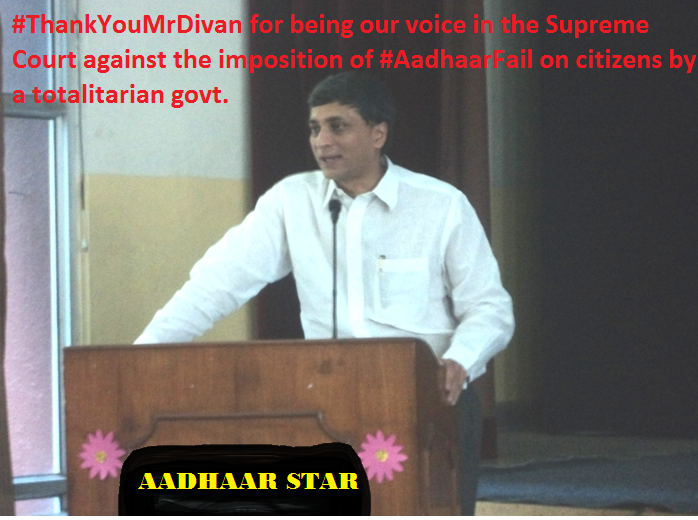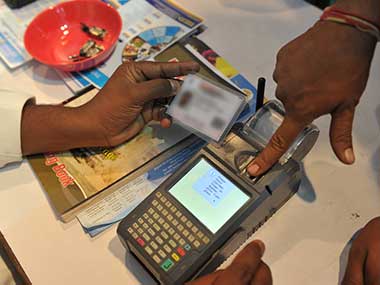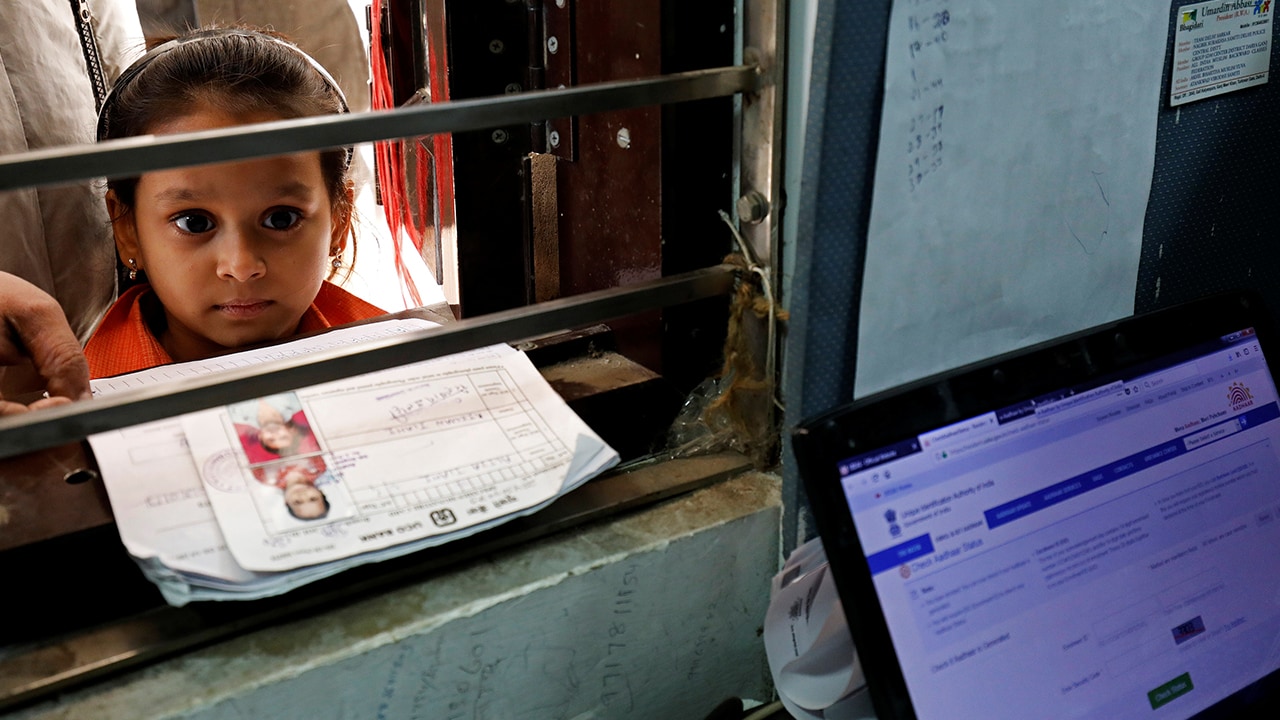Aadhaar hearing:
On Day 37 of the Aadhaar hearings, senior counsel Shyam Divan concluded his rejoinder for the petitioners, discussing various issues with Aadhaar and arguing that Aadhaar increases the coercive power of the State. Thereafter, senior counsel Gopal Subramaniam commenced his rejoinder, arguing that the State cannot place the burden of its failures on the individual.
Aadhaar strikes at the core of the rule of law
Shyam Divan continued his rejoinder discussing various issues with Aadhaar. He first discussed inorganic seeding being done by banks and telecom companies, who were seeding an individual’s Aadhaar with their bank accounts and telephone numbers without their permission.
He further argued that the biometrics of almost 100 crore individuals were collected by the UIDAI without statutory or other written authority. This, he argued, affects the core of the applicability of the rule of law in India, as opposed to the authority of a monarch. He further pointed out that there was no valid contractual relationship between the UIDAI and its agents.
UIDAI admits no verification is done for Aadhaar
He further argued that the UIDAI admitted through its responses in the questionnairefollowing the PowerPoint presentation made in Court that it does no verification at the stage of enrolment. Thus, the UIDAI only matches biometrics but does not take on the responsibility of actual identification. Further, the discretion to use the exception mechanisms prescribed for authentication failure, lay with the distributor, putting the citizen at the mercy of that person.
Aadhaar authentication is not a one-time occurrence
Next, he argued that as Aadhaar-based authentication becomes ubiquitous, tracking and profiling will become more comprehensive. He countered senior counsel Rakesh Dwiwedi’s arguments that authentication was a one-time occurrence. He displayed an illustrative chart showing an individual’s (hypothetical) authentication logs prepared over three days, divided into yearly, monthly and frequent logs, to the Court.
Is the ID4D Report impartial?
Next, he turned to the World Bank’s Identification for Development (ID4D) Report cited by the Attorney General. He pointed to Page 3 of the report, which indicated that the World Bank had partnered with Accenture to prepare the report. He then pointed to an Accenture Press Release saying that it had partnered with the UIDAI to facilitate its work. Further, the High Level Committee on this report also included Nandan Nilekani, the chairperson of the UIDAI. These points, he argued, must be kept in mind while considering the ID4D Report.
Original notification did not mention biometrics
He next turned to Section 59 of the Aadhaar Act, which aims to grant retrospective validity to Aadhaar related acts. He argued that even if this was a proper validating provision, it could not validate actions done by persons other than the central government, nor can it validate actions ultra vires the original notification of 2009. The original notification, for instance, makes no mention of the collection of biometrics.
He argued that even if the notification can be considered to be a parliamentary statute unless specifically mentioned something as invasive as the collection of biometrics would be illegal. On being asked by the Bench, he further stated that if his contentions were accepted, all enrolments before the Aadhaar Act would have to go.
The senior counsel in his rejoinder said that the schemes applicable to children, competitions, rehabilitation and matters of food and health should be excluded from the requirement of Aadhaar. Reuters.
Section 7 notifications should not be mandatory for children, rehabilitation
He then discussed Section 7 of the Aadhaar Act and the 144 notifications issued under it. He argued that schemes applicable to children, to competitions, to rehabilitation and matters of food and health should be excluded from the requirement of Aadhaar. To further this argument, he cited the example of a lawyer who was in a coma, whose pension the bank threatened to cut off. He also cited Aadhaar being made mandatory for Mid-Day Meal schemes, for painting and essay competitions for school children, etc. The Bench agreed that this was an issue which needed to be addressed.
Aadhaar increases the coercive power of the State
Divan then argued that Aadhaar, as a whole, has increased the coercive power of the State against the individual. Personal autonomy, further, extends to where an individual puts his fingertips. This may be reasonable for specialised purposes such as passports, but the current use of Aadhaar is overarching.
Aadhaar as a Money Bill circumvents constitutional protections
He further pointed to the violation of interim orders of the Court. He further argued on the issue of Aadhaar being passed as a Money Bill, arguing that the Constitution has a very intricate scheme of defences for protecting rights, of which the last line of defence is the Court. Further concrete defences include firstly, the Rajya Sabha, whose protection has been lost in the case of Aadhaar Act, and secondly, through Article 111. Here, the protection through presidential review and return of bills for reconsideration has also been done away with bypassing Aadhaar as a Money Bill.
The fatal features of Aadhaar
Lastly, he summarised the features of Aadhaar which are ‘fatal’, that it is an architecture of surveillance, it isn’t a Money Bill, there was no authority to collect biometrics before the Act, there was no informed consent, and so on. In summary, he asked if Aadhaar would survive the first five words of the Constitution of India — ‘We, the People of India’.
The State cannot pace burden of its failures on the people
Next, senior counsel Gopal Subramaniam commenced his rejoinder for the petitioners. He argued that a crucial question was on how to handle acts of misfeasance and malfeasance in the delivery of public services. The government, he argued, cannot place the burden of its own failures on the people, such as saying that a widow wants a second pension or a child wants a fake mid-day meal, when the fault is of the functionaries of the State. The Bench pointed out that even intermediaries, such as fair price shop owners, were responsible for this.
He then turned to Section 33 of the Aadhar Act on the disclosure of information and argued that there is no nexus between the footprint of a person’s activities being with the State and the delivery of public services. This, he argued, violates the requirement that the infringement of privacy should be minimal. He further questioned what school admissions had to do with the delivery of public services.
He argued that if a law has the effect of disempowering people, and impairing the identity guaranteed to them by the Constitution, then it must fall. Such a law, he argued, reverses the relationship between the individual and the State.
The rejoinder will continue on 11 May.
Sources of arguments include live tweeting of the case by Gautam Bhatia, Prasanna S andSFLC.in.



Leave a Reply